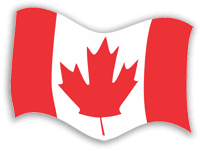|
Brian Mulroney came from an Irish-Canadian working class family
in the remote Quebec town of Baie-Comeau. He rose to be one of
Canada’s most successful Conservative prime ministers, serving
for two terms and nine years in the country’s highest office. In
retirement Mulroney was proud of his achievements, especially
the negotiation of free trade with the United States. But he
also had to explain significant failures and defend his
reputation for personal integrity.
As a young Quebecer (born in 1939), Brian Mulroney learned to
speak French as fluently as English. He graduated from Laval
University’s law school and became prominent in Montreal legal
and business circles. He worked very hard to try to build the
Progressive Conservative Party in Quebec, where it had been
historically weak. When he won the party leadership in 1983, his
supporters hoped he could win many more Quebec seats than the
Albertan, Joe Clark.
Mulroney did. In the 1984 election the Progressive Conservatives
won 211 of the 282 seats in the House of Commons, the biggest
victory in Canadian history. After years of Trudeau Liberalism,
the country now seemed set on a Conservative course.
Prime Minister Mulroney worked hard to improve relations with
the United States, which had deteriorated in the later Trudeau
years. He also tried to make Canada a good team player in global
affairs. He courted Western Canada by undoing the Liberals’
National Energy Policy, and won support from business groups by
privatizing several government-owned companies. Above all, he
tried to build support in Quebec by negotiating changes to the
constitution that would give it, and the other provinces,
significantly more power. The Meech Lake Accord of 1987 at first
seemed like a triumph for Mulroney, but never came into effect
because of resistance in Manitoba and Newfoundland. A second
plan for constitutional reform, the Charlottetown Accord, was
defeated in a national referendum in 1992.
Mulroney had more success in negotiating the Canada-US Free
Trade Agreement of 1988. It removed most tariff and other
barriers to trade between the two countries. This was a
fundamental change in policy for Canada (and the United States)
after more than 100 years of tariff protection. The agreement
was fiercely debated in the 1988 election, and passed after
Mulroney’s government was returned with another majority. It
later evolved into the current North American Free Trade
Agreement, which includes Mexico. NAFTA led to a permanent
re-alignment of the Canadian economy and huge increases in
north-south trade.
The Mulroney government hoped to reduce the large deficits in
public spending it inherited from the Trudeau era but there was
much resistance to its attempts to reduce social programs and
spending. The government attempted to modernize Canada’s
taxation system by introducing the Goods and Services Tax (GST),
a seven percent levy on almost all sales. It was deeply
unpopular across the country.
Resentment in Western Canada at what seemed to be Mulroney’s
pandering to Quebec led to a political rebellion within the
Conservative Party. Preston Manning, the son of a former premier
of Alberta, created the Reform Party, which attracted a number
of former Progressive Conservatives across Western Canada.
By 1993 the Mulroney government stood very low in popular
opinion. Rather than contest a third election, Mulroney
resigned. His replacement, Canada’s first female prime minister,
Kim Campbell, led the Progressive Conservative Party to the
worst defeat in the history of Canadian politics — only two
seats in the 1993 election. It was not clear whether the voters
were most angry at Campbell, Mulroney, the GST, a recession, or
failed constitutional deals. For the next decade Canadian
Conservatives were divided and powerless.
There had been several minor scandals during the Mulroney years,
and there were continuing rumours that the prime minister might
have been too friendly with free-spending lobbyists trying to
get government contracts. These issues came to haunt Mulroney
during his retirement; he had to admit that soon after leaving
office he had taken large cash payments from a notorious agent
for European companies, Karlheinz Schreiber; this sparked a
major judicial investigation.
Justifiably proud of his government’s achievements, Mulroney and
his friends fought hard to clear his name and preserve his
reputation as a major prime minister. He had always been loyal
to his family and his supporters; he had many friends both in
Canada and around the world. Not all Canadians had warmed to his
style of Irish blarney, though, and it seemed clear that there
would always be vigorous debates about his place in Canadian
history.
Further Reading: Right Honourable Men: The Descent of Canadian
Politics from Macdonald to Chrétien, by Michael Bliss; Memoirs,
1939-1993, by Brian Mulroney.
Next Instalment: Jean Chrétien: The Lucky Prime Minister
The Canadian Experience is a 52-week
history series designed to tell the story of our country to all
Canadians. Sponsored by Multimedia Nova Corporation and
Diversity Media Services partners, the series features articles
by our country’s foremost historians on a wide range of topics.
Past articles and author bios are available at
http://www.cdnexperience.ca. The Canadian
Experience is copyright ©2010-2011 Multimedia Nova
Corporation.
|
|
 #22 The Success Story of Brian Mulroney
#22 The Success Story of Brian Mulroney
